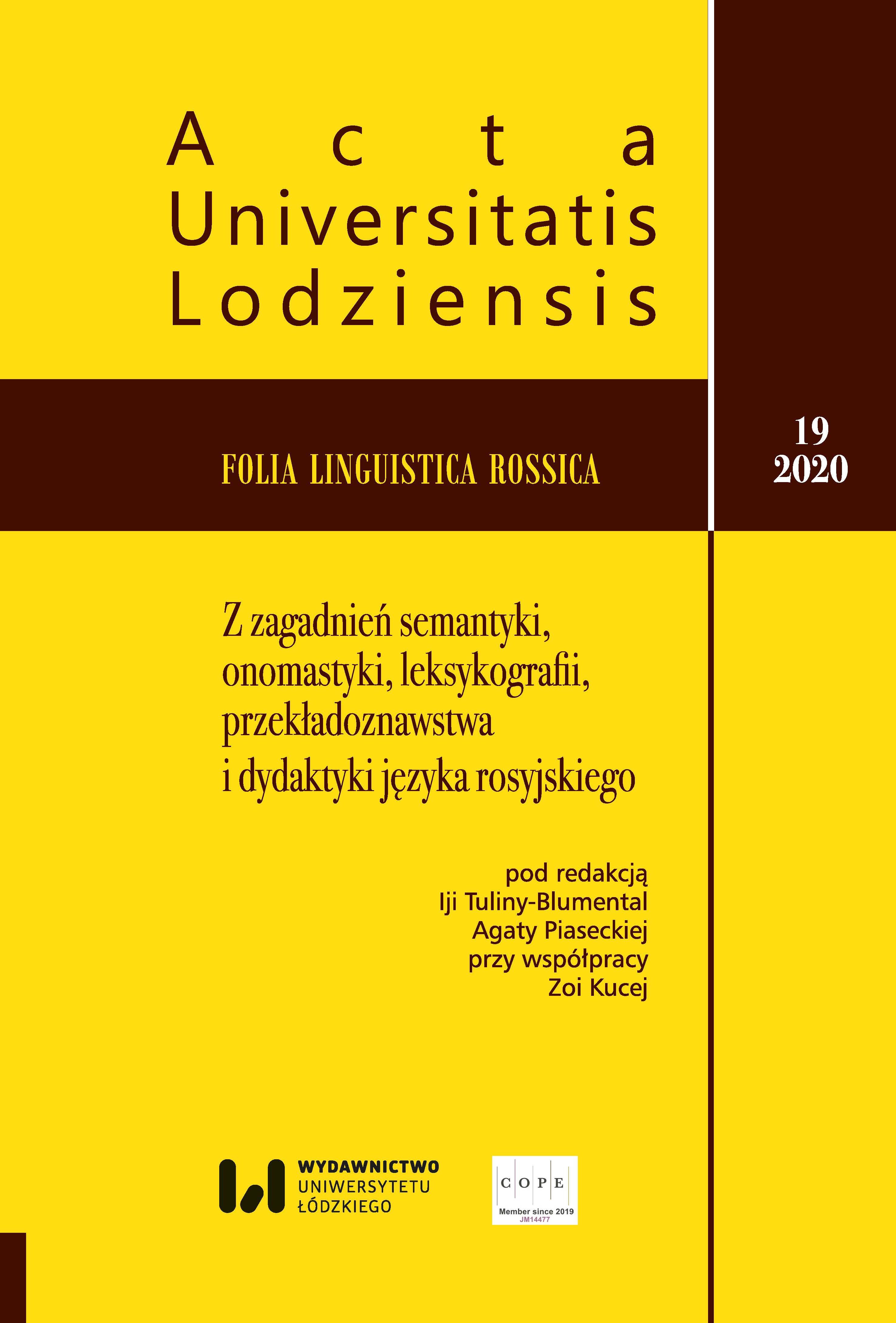Функции эмотивной лексики как средства реализации религиозно-нравственного идеала в житийных текстах XVIII–XX веков
Functions of emotive vocabulary as a means of pursuing religious and moral ideal in the hagiographic texts of the 18th-20th centuries
Author(s): Evgenija DmitrievaSubject(s): Language and Literature Studies, Semantics
Published by: Wydawnictwo Uniwersytetu Łódzkiego
Keywords: hagiography; emotive vocabulary; lexical semantics; functioning
Summary/Abstract: The article shares the results of an analysis of original hagiographic texts from the period between the 18th and 20th centuries from the standpoint of the synchronous-and-diachronic approach as a single array characterized by common cultural meanings conveyed by linguistic units. It demonstrates the continuity of the Russian hagiographic tradition, which was largely relying on personal qualities that were significant for the Russian linguistic consciousness of hallowed individuals and based on the religious and moral ideal. The analysis of emotive lexis helped highlight the methods of composing the images of saints in hagiographic texts. It is also intended to convey the author’s major concepts. Such lexical items have several functions. They are found in the central segments of texts that characterize people, objects, and various phenomena. Besides, they provide descriptions of the topos. The following parameters are distinguished: 1) the status of the described object (saint/ordinary person); 2) the specificity of an emotion conveyed in the verb (positive/negative/neutral) as well as its intensity (low/medium/high); 3) the cause of emotional suffering. In hagiographic texts the lexis of emotions seems to be a link between the content and the formal structure of the text, thus fulfilling a text-composing function.
Journal: Acta Universitatis Lodziensis. Folia Linguistica Rossica
- Issue Year: 2020
- Issue No: 19
- Page Range: 41-52
- Page Count: 12
- Language: Russian

